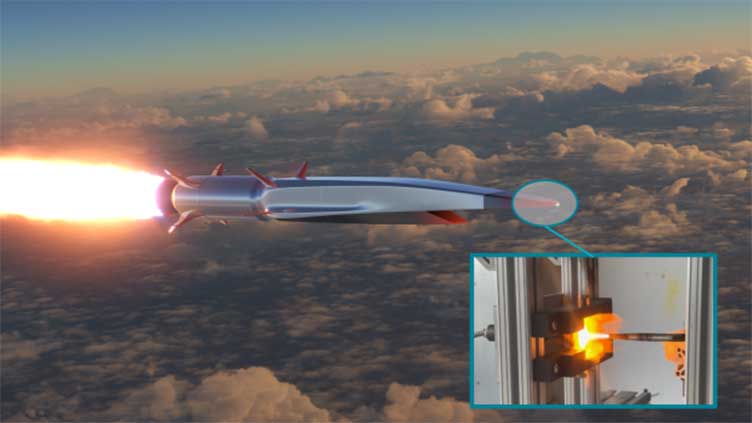Missile that sweats like humans to fly in extreme heat being developed for US Air Force

Technology
US Air Force is taking hypersonic missiles
(Web Desk) - The US Air Force is taking hypersonic missiles to the next level with sophisticated tech that enables the weapon to sweat like humans.
Missiles will be capable of reaching speeds in excess of Mach 5 - the equivalent of 3836mph - in some of the most extreme environments known to science, with temperatures reaching 3,000 degrees celsius (5,432 F).
One of the biggest limitations for rockets and missiles is their ability to go even faster without being weakened by thermal stress.
The new tech is designed to get around this problem by mimicking the cooling system used in our bodies, effectively letting off a "highly-pressurised fluid".
This comes out of the leading edge of a hypersonic vehicle and instantly evaporates to form a protective insulative layer for the vehicle so it avoids heating up.
Doing so should enable it to travel faster and more reliably than ever before, according to the company behind it.
US Air Force officials have signed a $2.8million / £2.1million deal with Denver-based Canopy to work on the next-generation thermal protection systems.
"I think the biggest technological or industrial capability we can invest in would be to increase our production rates, particularly, of the thermal protection systems and additive – thermal protection systems for glide vehicles and additive manufacturing for cruise missile engines," said Dr Gillian Bussey, Director of the Joint Hypersonic Transition Office of the Under Secretary of Defense for Research & Engineering.
The tech will also be used for space re-entry systems.
Canopy is working on sensors in the system to monitor the environment too.
The firm says that its developments align with the US Air Force's Global Strike Operational Imperative.
Global Strike focuses on developing resilient long-range strike capabilities against advanced threats.
"In an era of increasingly contested air, space, and cyber environments, the DAF must maintain its ability to hold any target at risk," Canopy says.


